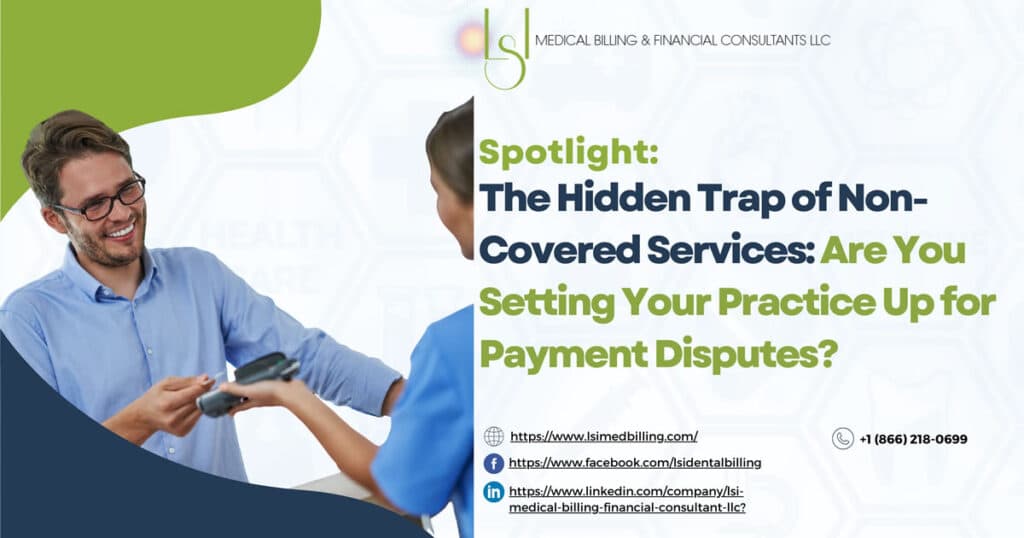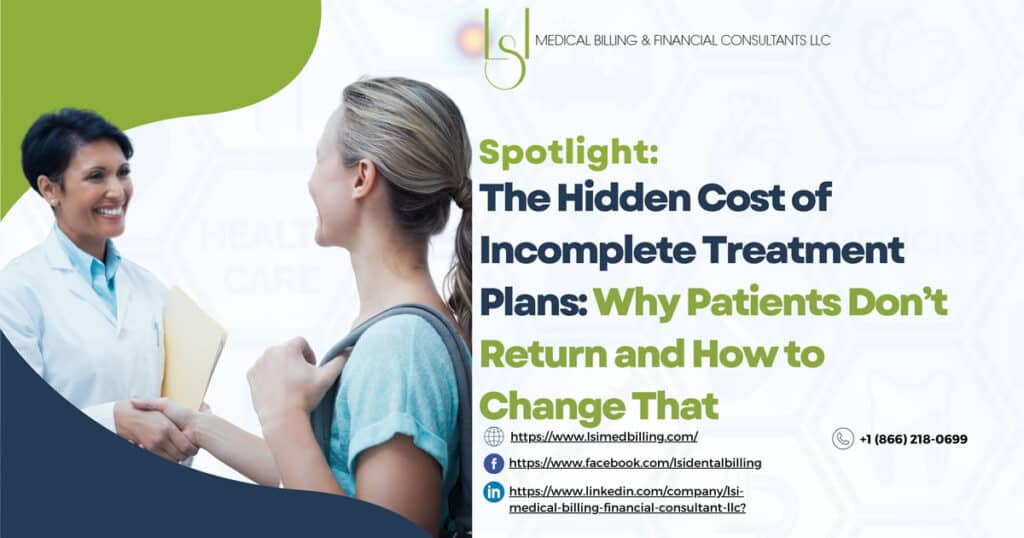Blog
The Hidden Trap of Non-Covered Services: Are You Setting Your Practice Up for Payment Disputes?
If you’ve ever had a patient push back on a bill for a service their insurance didn’t cover, you know how awkward—and sometimes frustrating—it can be. The truth is, billing for non-covered services isn’t just about whether you can charge the patient. The real issue is whether you’re protecting your practice from lost revenue, compliance risks, and unhappy patients who feel blindsided by unexpected costs.
The Real Problem: Payment Confusion Leads to Delayed or Lost Revenue
Here’s the painful reality: Many dentists assume that simply informing patients that a service isn’t covered is enough. But when patients don’t fully understand their financial responsibility, they either:
- Refuse to pay, arguing that they weren’t properly informed.
- Delay payment, creating cash flow problems for your practice.
- Leave negative reviews or, worse, file complaints, damaging your reputation.
So, how do you avoid these pitfalls while still getting paid fairly for your work?
1. Crystal-Clear Financial Conversations
Most billing disputes stem from miscommunication. Patients often hear what they want to hear about insurance coverage. Make sure they truly understand by:
- Using clear, simple language—skip the jargon.
- Having patients acknowledge, in writing, that they are responsible for payment.
- Reinforcing this in multiple ways—verbally, in writing, and even with a follow-up email.
2. Knowing the Rules—And Staying Compliant
State laws and insurance policies have strict guidelines about what you can and can’t bill patients for. Some contracts prohibit balance billing, while others require specific disclosures. Failing to follow these rules can lead to costly penalties—or even legal trouble.
3. Making Payment Easier for Patients
When patients feel financially stuck, they’re more likely to delay or dispute payments. Offer flexible options like:
- Payment plans that break up costs into manageable chunks.
- Third-party financing to ease the upfront burden.
- Transparent pricing discussions that help patients plan ahead.
4. Proper Documentation & Coding: Your Billing Safety Net
A simple coding mistake can lead to unnecessary claim denials or compliance risks. Ensuring your documentation is airtight means fewer headaches when it comes time to bill both insurance companies and patients.
How LSI Medical Billing & Financial Consultants Can Protect Your Practice
At LSI, we help dental practices avoid these revenue-draining mistakes by:
- Ensuring accurate coding to reduce denials and disputes.
- Navigating state and insurance regulations so you stay compliant.
- Streamlining patient billing to improve cash flow and minimize frustration.
- Training your team on best practices for transparent patient communication.
Don’t let billing confusion cost your practice money and patient trust. Let’s set up a strategy that ensures you get paid—fairly, ethically, and without the stress. Contact us today to learn how we can help.



